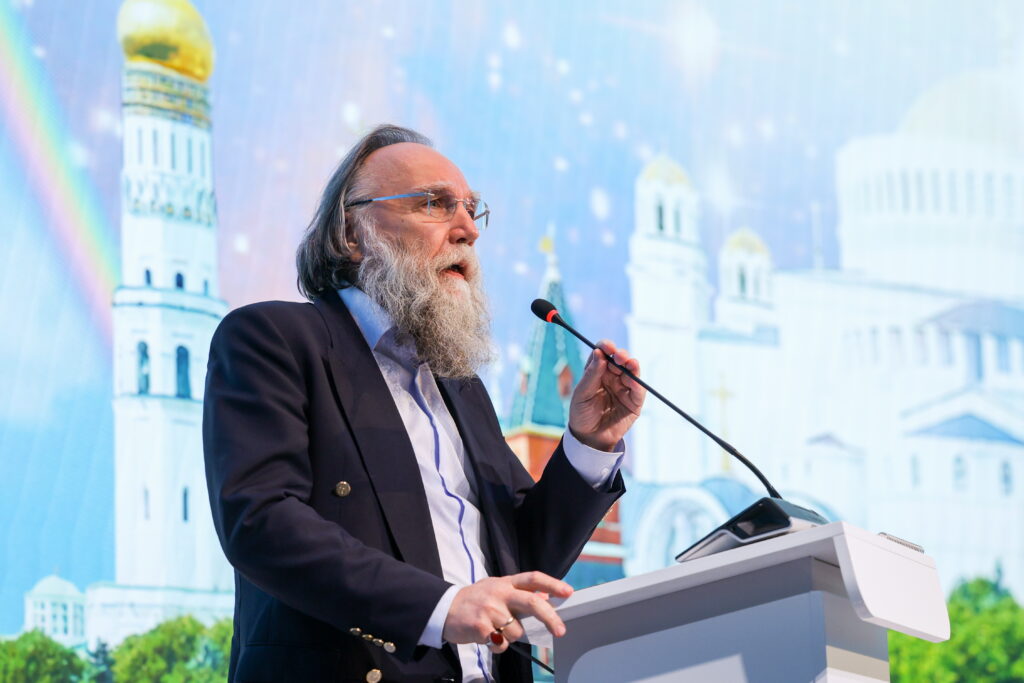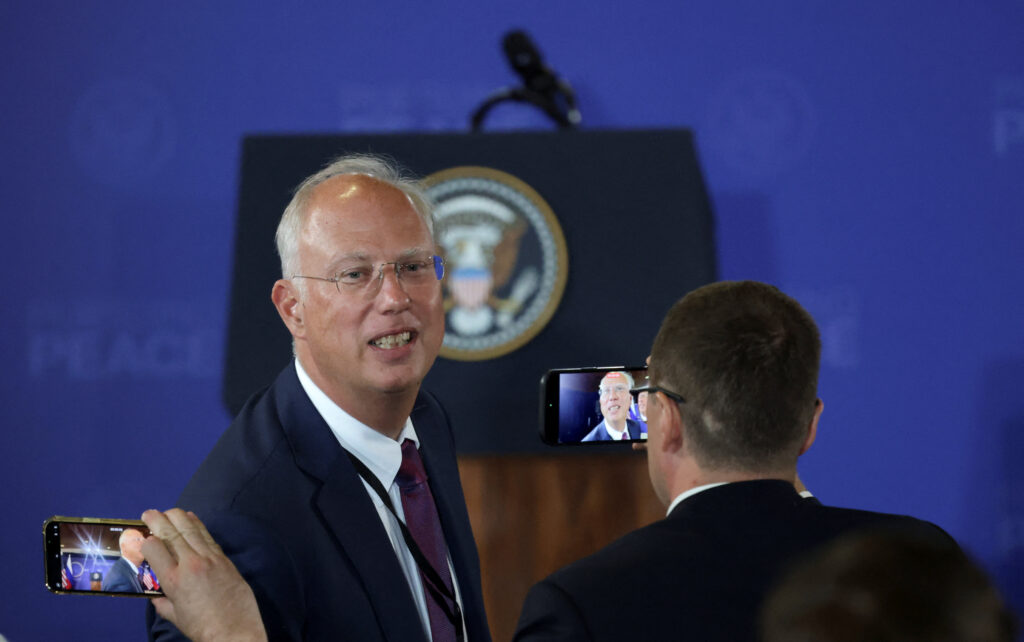The Ministry of Justice has recently added «Brief» and «Nezygar» Telegram channels to its list of «foreign agents». This is a milestone in the history of Russian media. The state is trying to establish full control over the media: the «old» familiar outlets have already been completely censored or blocked, now it is the turn of the new digital media, which quickly became an alternative to the traditional, but blocked or censored sources of information. For a long time, Telegram channels were a kind of gray area, tolerated by the authorities and used to exchange signals within intra-elite groups or as an outlet for the politicized part of society to blow off some steam. Now, Telegram has become a dangerous problem for the authorities.
Channels with history
«Nezygar», «Brief» and «Brief Important» are not the first Telegram channels to be labeled as as «foreign agents» by the Ministry of Justice. Previously, a popular channel «VChK-OGPU» that boasts over a million subscribers was also included in the list of the agency. However, at first this practice of registering Telegram channels as «foreign agents» looked more like an exception than a rule. «VCHK-OGPU» regularly published dirt on influential officials and siloviki, attaching evidence, i.e. scans of documents or photos to its posts. Victims of such defamatory attacks could lobby for the inclusion of their media enemies in the list of foreign agencies so as to hinder their work. There are even cases where people were registered as «foreign agents» as part of corporate feuds: such was the case of Katerina Bosova, the widow of a major businessman, Dmitry Bosova.
«Nezygar, and even more so «Brief», did not publish any compromising information. These Telegram channels are better described as aggregators of information, which was in high demand both inside and outside Russia as the grip of censorship tightened. The reasons for their popularity were clear: most independent media were blocked, and the remaining press had long since stopped reporting on election fraud or the Kremlin’s political problems, offering only the official interpretation of the state of affairs. «Brief» was bold enough to quote the few Russian politicians critical of the Kremlin, such as Oleg Shein, and reposted from media outlets blocked in the Russian Federation, including those labeled as «foreign agents» and even «undesirable organizations», as well as patriotic war reporters, regional politicians, activists and experts not always loyal to the authorities. In addition, the authors of the channel made their own contributions: for example, they published analysis of sociological surveys. This does not mean that the selection of information in this channel can be called objective and critical of the regime: there were clearly promotional posts in their feed about the achievements of this or that official or agency. However, against the backdrop of the official and pro-Kremlin media, the aggregation offered by the «Brief» was different in a good way. «Nezygar», which in its early days published insiders, pseudo-insiders and analyses of the structure of the Russian government, gradually turned into an aggregator of political and economic information, but one that was more pro-Kremlin and conservative in nature. Of course, there has always been a place in the «Nezygar» feed for SMM campaigns, variously promoting or slandering certain figures, but then the business of the Russian segment of Telegram is rarely spared either from «PR postings» or «dirt throwing».
Initially, «Brief» was called «Nezygar.Brief», part of a network of Telegram channels around the parent channel «Nezygar’, and in its early days it would present a brief information digest from the politicized segment of Telegram and the media. However, the owners of the channels changed, and with them the policy of content selection and presentation. «Brief» moved away from brevity (the «Brief. Important» channel, also recognized as a «foreign agent», took up the task of publishing shorter gists of information), and «Nezygar» drifted toward aggregation and digest format. By the summer of 2024, «Brief» had actually become a full-fledged media outlet: it had a non-anonymous editor-in-chief, media manager Vladimir Dergachev, who had worked at RTVI, RBC, and the Russian service of the BBC. Even before that, rumors had linked «Brief» to ROSTEC chief Sergey Chemezov, and after the channel ceased to be anonymous, these rumors were further confirmed. The media reported that Chemezov sponsored RTVI through businessmen close to him. In this sense, the transition of an experienced media manager from TV to the sphere, which is both booming and quite promising in the current Russian reality looks quite logical. «Nezygar» was linked to Alexey Gromov, the head of the information bloc of the presidential administration, but since then, according to my sources, the channel has changed its non-public affiliation several times, and now it can be considered loyal to the PR management of the government, i.e. to Leonid Levin, the deputy chief of staff of the Cabinet of Ministers.
«Internet within the Internet»
Until the early mid-2010s, the Kremlin regarded the Internet as a secondary source of information and a means of communication for a narrow, politicized segment of society. Therefore, it was supervised with the remaining resources and almost as an afterthought by the political bloc of the presidential administration and, importantly, not by the information bloc, which did most of the censorship of the traditional media. That is why, digital media enjoyed more freedom: they needed more sophisticated and subtle tools than straightforward propaganda and bans in order to influence the politicized public. At some point, the Kremlin found out that the audience of popular websites, including socio-political ones, has reached millions of readers. These millions of readers were discovering on the Internet a very different picture of reality than the one conveyed by the propaganda narratives. After that, the management of popular websites was thoroughly purged (since the digital platforms themselves were owned by businessmen affiliated with the Kremlin), and their information policies were now censored as harshly as those of the «traditional» media. For a while, small media outlets (such as Slon.ru, now known as «Republic») and media outlets founded by editorial and journalistic teams who had left censored major platforms or newspapers (such as Meduza or Proyekt) continued to operate as isolated islands of freedom of speech. In addition, business publications — RBC, Vedomosti and Kommersant — tried to do their job and their audience grew, but the Kremlin censored them more and more. Soon the Russian authorities realized that the Internet media was no longer a ghetto for politicized audiences, but had truly become a source of information for the masses. The Ministry of Justice started to label various media outlets independent of the Kremlin as «foreign agents», making their work more difficult, while censorship and the pressure of «guidelines» (recommendations of what (not) to cover and how) issued by the presidential administration hindered the work of the media outlets dependent on the Kremlin. After the start of Russia’s full-scale war against Ukraine, the pressure on the Internet media increased dramatically. «Foreign agents» were now blocked and given another label — that of an «undesirable organization». Sharing content produced by these «undesirable organizations» was now a criminally punishable offence. The list of taboo topics, which were now off limits for the loyal media, has grown exponentially — a mere decade ago the only real taboos were Putin’s family and the Russian Orthodox Church.
By this time, Telegram had become an «Internet within the Internet». On the one hand, the abundance of anonymous channels that published rumors, insider and pseudo-insider information, real and biased analysis created a «white noise» effect. When immersed in this flow of information, an average user could only reaffirm his or her pro-Kremlin views: «Things are really not that clear-cut, we will never know the whole truth.» Channels were bought and re-bought by political and corporate actors for their own media defense or attacks on their rivals and competitors.
Yet on the other hand, a reader with a sophisticated knowledge of politics or economics could easily extract the information he or she needed from this muddy stream. Gradually the audience of the Telegram began to grow. Russians began to subscribe to the channels of war reporters who could talk about the problems of the war, and followed Telegram channels of blocked independent media and of some politicians. In such conditions, any aggregator of this information that made use of the relative freedom of speech automatically became popular and an effective substitute for traditional media. «Brief» gradually drifted into this direction, becoming a semblance of a popular Internet aggregator, albeit without any photos or other illustrative materials. The disclosure of the editorial team’s names only worked to boost the channel’s credibility and authority.
More Credibility Means More Censorship
Moderate, lukewarm loyalty is no longer enough for the Kremlin; it now needs total control. Therefore, the targets of the Ministry of Justice’s lists of «foreign agents» may be popular war correspondents who, while supporting the war and shying from directly criticizing Putin, provide information that differs from the Defense Ministry’s triumphant, up-beat reports. There is an article in the Russian criminal code that can be used to harass and persecute them: for example, they can be charged with discrediting the Russian army. Aleksandr Khodakovsky, one of the critics of the leadership of the Defense Ministry and the generals, a staunch supporter of the Donbass separatists, has already announced that he will stop running his channel, which has 500,000 subscribers. It is likely that other stubborn military reporters will follow his example.
Finally, the Kremlin may block Telegram altogether, which was previously considered even useful by members of the presidential administration, so «rehearsals» or trial blockings of the messenger have resumed. The blocking is unlikely to take place before the regional elections, though: after all, the mobilization of state employees and companies is also coordinated through Telegram channels. But after the elections, the likelihood of this scenario being implemented increases significantly.
The Russian authorities are increasingly determined to use all the censorship tools at their disposal, which have come to affect even the media projects run by figures quite loyal to the Kremlin. This trend is aggravated by the growing gap between the situation on the ground and its false propagandistic representation. However, all efforts to shield Russian citizens from reality with a (fire)wall of censorship have so far proved futile. People switched from censored TV and tabloids to the Internet, started reading independent media after major Internet sites were taken down, and when those independent sites were blocked, they flocked to Telegram. If this platform is completely cleansed, censored and blocked, new channels of information dissemination are bound to appear elsewhere.










